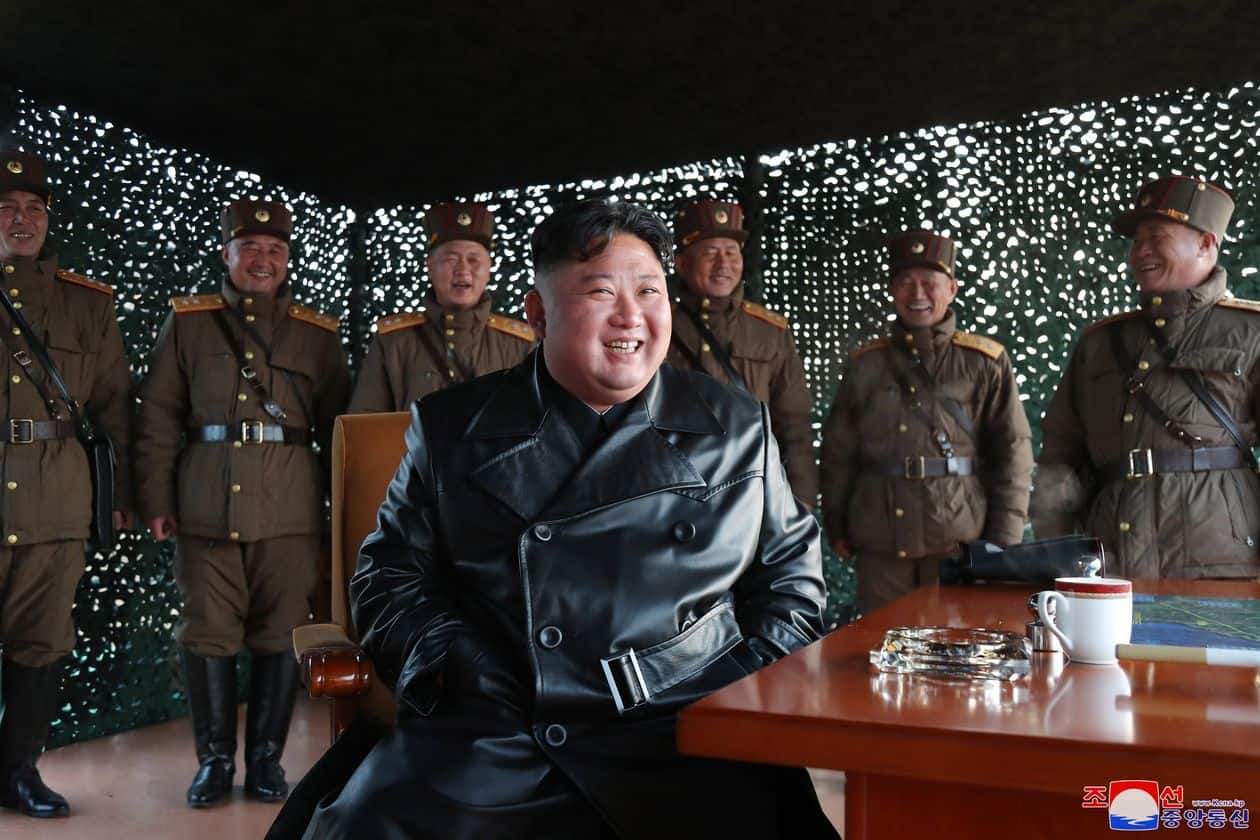History Shows North Korea Is Good at Guarding Secrets of Kim Family’s Health

North Korea typically puts on a good poker face when a member of its ruling Kim dynasty falls gravely ill. The health of North Korean leaders is among the isolated regime’s most closely guarded secrets—and something foreign intelligence agencies have struggled to keep tabs on.
Kim Jong Un, the third member of his family to run the communist dictatorship, has been out of public view for more than two weeks. He is rumored to be alive, dead, or somewhere in-between.
South Korean officials, who keep a close eye on their cloistered neighbor, on Tuesday expressed confidence that Mr. Kim is alive. The country’s unification minister referred to media reports suggesting otherwise as an “infodemic” and dismissed the coverage as fake news.
On Monday, President Trump suggested he had information about Mr. Kim’s health status and hoped the North Korean leader was fine. “I do know how he’s doing,” Mr. Trump said, adding, “You’ll probably be hearing in the not too distant future.”
Speculation about Mr. Kim’s health accelerated after he failed to show up for an April 15 celebration marking the birth anniversary of his grandfather, North Korea founder Kim Il Sung. Other senior North Korean officials have also stayed out of the spotlight in recent weeks.The coronavirus pandemic is one reason Mr. Kim and others may be limiting their public appearances, security analysts say. Mr. Kim, last photographed on April 11, has disappeared from the public eye for longer stretches before. In 2014, he had ankle surgery that sidelined him for nearly six weeks.
“It’s impossible to know in real-time when and if the North Korean leader has fallen ill,” said Nam Sung-wook, the former head of the South Korean intelligence service’s think tank.
News of the demise of the North’s first two leaders, Kim Il Sung, who died in 1994, and Kim Jong Il, killed by a heart attack in 2011, took the world by surprise when they were reported in somber state-media broadcasts from Pyongyang.
South Korean intelligence officials suspect only a handful of Kim regime insiders had real-time information about what was happening in those cases.
When Kim Jong Il had a stroke in the summer of 2008, it was kept secret for days—or possibly weeks—before U.S. intelligence learned that French doctors were asked for their opinion of a brain scan, according to former South Korean officials and diplomatic cables released by WikiLeaks.
American spies determined that Mr. Kim wasn’t terminally ill, partly by monitoring telecommunications between Pyongyang and France, Mr. Nam said. U.S. officials relayed the information to their South Korean counterparts. A South Korean official said at the time that the dictator was well enough to brush his teeth.
But North Korea remained largely “a black box” for U.S. and South Korean officials, according to diplomatic cables from that time.
South Korea has “no firm information about Kim Jong-il’s health,” read a U.S. cable dated Oct. 6, 2008, quoting a senior government official speaking two weeks after Seoul’s intelligence service publicized the elder Kim’s illness.
The documents couldn’t be independently verified, though they largely match what South Korean officials recall about the correspondence with the U.S.
Thae Yong-ho, a senior North Korean diplomat who defected four years ago, said even the most senior Kim regime officials “don’t know the whereabouts of the Kim Jong Un family,” in a Tuesday post on his Facebook page.
Other means of gathering intelligence, including the use of satellite imagery, can prove ineffectual, because Pyongyang knows it is being watched, added Mr. Thae, who was recently elected to South Korea’s legislature.
“That’s why they always employ a variety of ‘deception tactics’ to conceal Kim Jong Un’s whereabouts,” Mr. Thae wrote.
North Korea, though quick to publish state-media missives striking back against U.S. officials’ comments about the regime, doesn’t have a tradition of responding to rumors about the health of the country’s leaders, said Rachel Lee, a former senior North Korea analyst for the U.S. government.
Therefore, notions about the North’s silence on the current media frenzy shouldn’t be taken as definitive evidence that something is amiss, she added.
“Maybe it doesn’t dignify a response from North Korea,” Ms. Lee said. “You also don’t want to give an impression that the leader’s actions are being dictated by international rumors.”
Photo: In a photo provided by North Korean state media, Kim Jong Un observes a weapons test in March. - YONHAP NEWS/ZUMA PRESS











